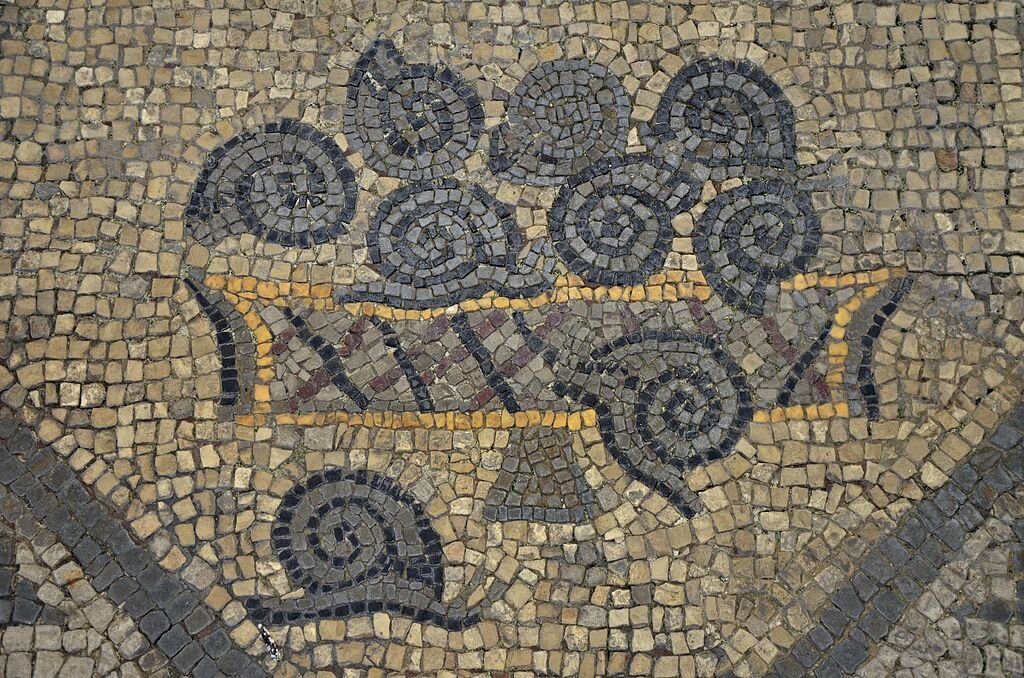As part of a project at the Einstein Centre Chronoi on time and ancient medicine, Peter N. Singer, Orly Lewis and I have been reading through Galen’s writings on the pulse. We came across a passage where Galen goes on a racist rant against the philosopher, Chrysippus. Galen tells us that Chrysippus moved to Athens from the town of Soli in Cilicia (in modern day Turkey), and for that reason, has no business using Attic Greek in novel ways. Galen seems to be alluding to (and rejecting) a hypothetical defence of Chrysippus’ language, one based on a story that must have been making the rounds. The story is an attempt to give the etymology of the word “solecise”. It claims that the citizens of Soli, a town supposedly founded by Solon, the legendary Athenian ruler, originally spoke Attic, but over time, spoke a corrupted dialect. Here is how Diogenes Laertius tells it:
When he (sc. Solon) left that place, he arrived in Cilicia and founded a city, which he called Soli after himself. And he settled a few Athenians there, who over time corrupted the language and were said to “solecise.”
ἐκεῖθέν τε ἀπαλλαγεὶς ἐγένετο ἐν Κιλικίᾳ, καὶ πόλιν συνῴκισεν ἣν ἀπ᾽ αὐτοῦ Σόλους ἐκάλεσεν: ὀλίγους τέ τινας τῶν Ἀθηναίων ἐγκατῴκισεν, οἳ τῷ χρόνῳ τὴν φωνὴν ἀποξενωθέντες σολοικίζειν ἐλέχθησαν.
Diog. Laert. 1.51
Here is Galen:
For among other things, [the Pneumatist] school also claims that you should betray your state more quickly than you betray your beliefs. But if you keep quiet while they are making decrees and you don’t say anything in opposition, and then allow them to discuss something, they immediately blurt out something contrary to their own decree. This is very much in line with the forefather of their sect, Chrysippus. For he makes decrees about terminology more than Solon set down laws for the Athenians to write on their wooden tablets. He’s the one who first confused these things, and when you ask his successors who follow his decrees, ‘why on earth isn’t he consistent with his own edicts?’, they say, ‘he is speaking loosely.’ ‘Well then, my my fine fellows, is it possible for people to speak loosely without falling into error by doing so?’ ‘It’s possible,’ they say, since what else could they say when they are, as the saying goes, trapped in a well? Well, why on earth don’t they allow other people [to speak loosely]? Or is it only possible for Chrysippus and his followers to do so? By the gods, why? Because, obviously, he was from the race of Atticans, from the line of Kodros and Erechtheus. But if he really was from this race, then he would not have debased, so to speak, the currency of the customary language of their ancestors. And in fact, the worst thing is that Chrysippus wasn’t born in Athens and wasn’t raised there. Instead, he shows up, fresh off the boat from Cilicia, and before he properly learns any Greek, he makes decrees to the Athenians about terminology, like “the jay imitating the siren”—as if I should say a jay, rather than a jackdaw, or a crow, or another more appropriate word to use for someone so shameless.
τά τε γὰρ ἄλλα καὶ ἡ αἵρεσις αὐτῶν θᾶττον πόλιν ἢ δόγμα φησὶ χρῆναι προδιδόναι, ἀλλ' ἐὰν σιωπήσῃς νομοθετούντων καὶ μηδόλως ἀντείπης, εἶτ' ἐπιτρέψῃς περί τινος διαλέγεσθαι, παραχρῆμα ταῖς ἑαυτῶν νομοθεσίαις ἐναντία φθέγγονται. πολὺ δὲ τοῦτ' ἔστι παρὰ τῷ προπάππῳ τῆς αἱρέσεως αὐτῶν Χρυσίππῳ. νομοθετεῖ μὲν γὰρ ὀνόματα πλεῖον ἢ Σόλων Ἀθηναίοις ἱστᾷν τοῖς ἄξοσι νομίσματα. συγχεῖ δ' αὐτὸς πρῶτος αὐτά. καὶ εἰ ἔροιο τοὺς διαδόχους αὐτοῦ τῆς νομοθεσίας, τί δή ποτε οὐκ ἐμμένει τοῖς ἑαυτοῦ παραγγέλμασι, καταχρῆται, φασίν. ἔξεστιν οὖν, ὦ βέλτιστοι, καταχρῆσθαι, καὶ οὐχ ἁμαρτάνουσιν οἱ τοῦτο ποιοῦντες; ἔξεστι, φασί. τί γὰρ ἄλλο εἰπεῖν ἔχουσιν, ὅταν ἐν φρέατι, τοῦτο δὴ τὸ τοῦ λόγου, συσχεθῶσι; τί δή ποτ' οὖν τοῖς ἄλλοις ἀνθρώποις οὐκ ἐπιτρέπουσιν; ἢ μόνῳ Χρυσίππῳ καὶ τοῖς ἀπ' αὐτοῦ τοῦτο δρᾷν ἔξεστι; διὰ τί πρὸς τῶν θεῶν; ὅτι δηλαδὴ γηγενὴς Ἀττικὸς ἦν τῶν ἀμφὶ Κόδρον τε καὶ Ἐρεχθέα. ἀλλ' εἰ τῶν τοιούτων ὄντως ἦν, οὐκ ἂν παρεχάραττεν οἷον νόμισμά τι τὸ τῆς παλαιᾶς φωνῆς ἔθος. νυνὶ δὲ τὸ δεινότατον οὔτε γεννηθεὶς Ἀθήνῃσιν οὔτε τραφεὶς, ἀλλὰ χθὲς καὶ πρώτως ἥκων ἐκ Κιλικίας, πρὶν ἀκριβῶς αὐτὸν ἐκμαθεῖν ἡντιναοῦν Ἑλλάδα φωνὴν, Ἀθηναίοις ὑπὲρ ὀνομάτων ἐπιχειρεῖ νομοθετεῖν ἃ κίττα τὰν σειρῆνα μιμουμένα, ἵνα κίτταν εἴπωμεν, μὴ κολοιὸν, μηδὲ κόρακα, μηδ' ἄλλο μηδὲν ὧν οἰκειότερον ἦν εἰπεῖν τὸν οὕτω θρασύν.
Galen, De differentia pulsuum, 2.10 (8.630-8.632 Kühn)


